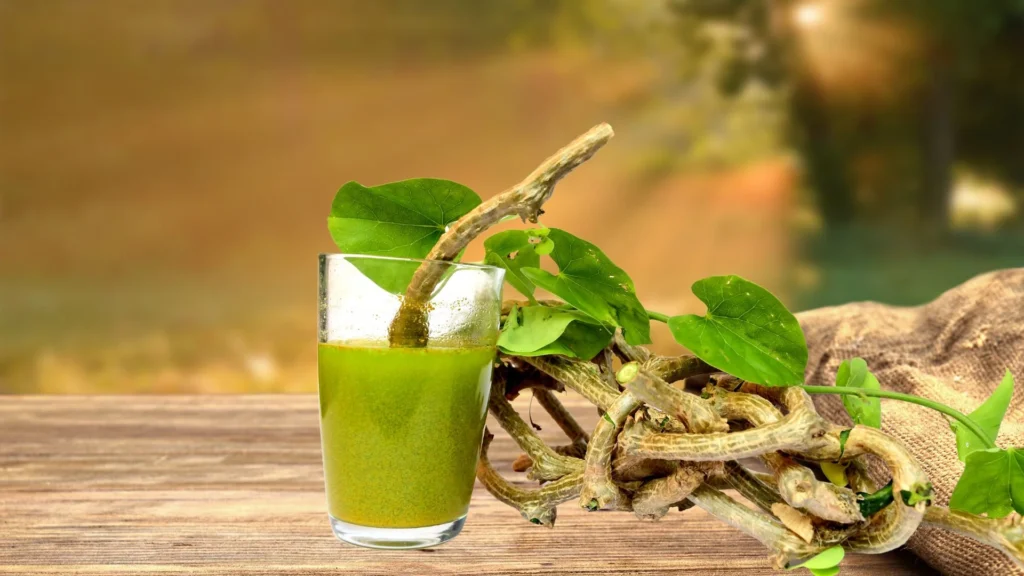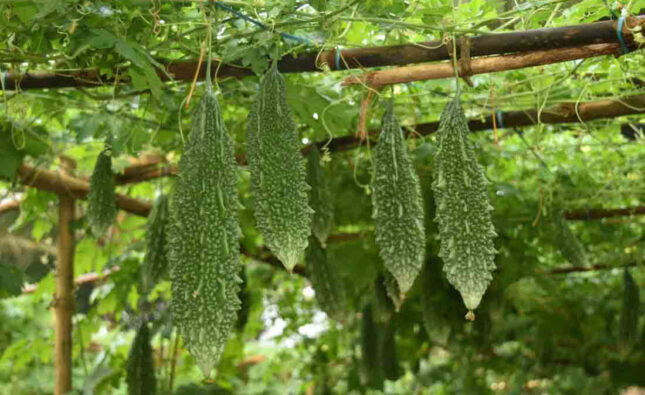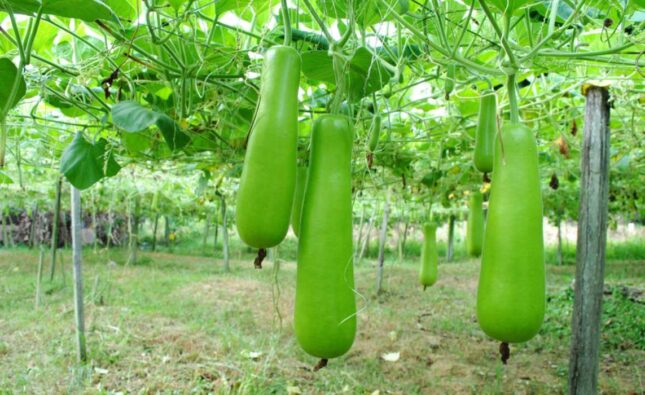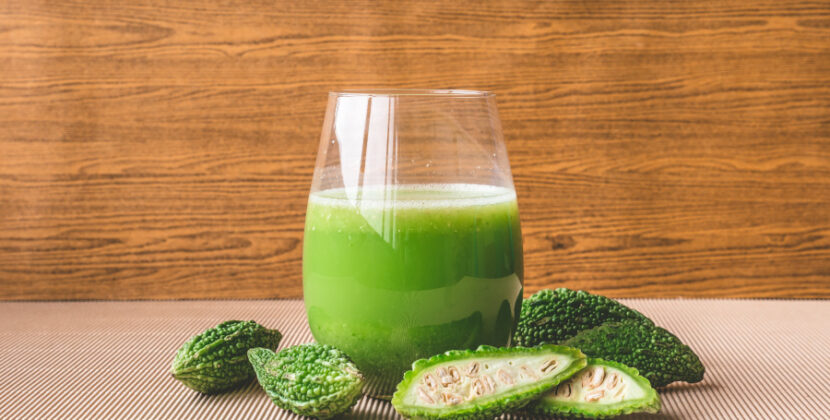Giloy Farming is the Good Source of Income, Where Can Sell, Its Health & Ayurvedic Importance: A Complete Guide
Giloy, also known as Tinospora cordifolia or Guduchi, is a popular medicinal plant in traditional Ayurvedic medicine. It is native to India and has been used for centuries for its various health benefits. Giloy is a climbing shrub with heart-shaped leaves and is often referred to as the “root of immortality” due to its numerous therapeutic properties. In Ayurveda, Giloy is considered an adaptogenic herb, which means it helps the body adapt to stress and promotes overall well-being.
It is known for its immunomodulatory, antipyretic (fever-reducing), antioxidant, and anti-inflammatory properties. Giloy can be consumed in various forms, including fresh stems, powdered form, or as a part of herbal formulations. However, it’s always advisable to consult a qualified healthcare practitioner or an Ayurvedic expert before using Giloy or any other herbal remedy, especially if you have any underlying medical conditions or are taking medications.
Giloy Farming
Giloy farming refers to the cultivation of Giloy plants, also known as Tinospora cordifolia or Guduchi, for commercial purposes. Growing Giloy can be a profitable venture due to its high demand in the herbal medicine industry. Here are some key points to consider if you are interested in Giloy farming:
1. Climate and Soil Requirements:
Giloy is a tropical plant that thrives in warm and humid climates. It grows well in regions with temperatures between 20 to 30 degrees Celsius (68 to 86 degrees Fahrenheit) and requires moderate rainfall. The soil should be well-drained, fertile, and rich in organic matter.
2. Land Preparation:
Prepare the land by plowing, removing weeds, and incorporating organic matter. This helps improve soil fertility and structure.
3. Propagation:
Giloy can be propagated through stem cuttings or by using the root or aerial parts of the plant. Stem cuttings are commonly used for commercial cultivation. The cuttings should be around 1.5 to 2 feet long and preferably taken from healthy, disease-free plants.
4. Planting and Spacing:
Prepare the land by plowing and removing weeds. Plant the stem cuttings in rows or pits with a spacing of 2 to 3 feet between plants. The cuttings should be inserted about 2 to 3 inches deep into the soil.
5. Training and Support:
Giloy is a climbing vine, so it requires support structures like trellises or poles for proper growth. Provide suitable support systems to guide the plant’s climbing nature.
6. Watering and Maintenance:
Giloy plants require regular watering to keep the soil moist but not waterlogged. Mulching can be beneficial in conserving soil moisture and preventing weed growth. Regular weeding and removal of diseased or damaged parts are essential for plant health.
7. Fertilization:
Apply organic manure or compost during the planting stage. Regular supplementation of organic fertilizers or balanced NPK (nitrogen, phosphorus, and potassium) fertilizers can help improve plant growth and yield.
8. Harvesting:
Giloy is usually harvested after 2 to 3 years of cultivation when the stems become mature and thick. Harvesting is done by cutting the stems close to the ground. After harvest, the stems can be dried in shade or under controlled conditions.
9. Marketing:
Giloy has a significant demand in the herbal medicine and Ayurvedic industries. You can sell fresh Giloy stems or process them into dried powder, extracts, or other value-added products. Establishing relationships with herbal medicine manufacturers, Ayurvedic companies, or local markets can help in marketing your produce. It’s important to note that specific farming practices may vary depending on the local climate, soil conditions, and agricultural practices in your region. Conducting thorough research, consulting agricultural experts, or visiting successful Giloy farms in your area can provide valuable insights for successful cultivation.
Importance of Giloy
Giloy, also known as Tinospora cordifolia or Guduchi, holds significant importance due to its medicinal properties and traditional uses in Ayurveda, the ancient Indian system of medicine. Here are some key aspects highlighting the importance of Giloy:
1. Immunomodulatory Effects:
Giloy is known for its immunomodulatory properties, which means it helps regulate and strengthen the immune system. It is believed to enhance the body’s natural defense mechanisms, making it valuable in boosting overall immunity and preventing infections.
2. Antioxidant and Anti-inflammatory Properties:
Giloy possesses potent antioxidant and anti-inflammatory properties. It helps in neutralizing harmful free radicals in the body, reducing oxidative stress, and combating inflammation. These properties are crucial for maintaining overall health and well-being.
3. Fever Management:
Giloy has been traditionally used to manage fevers, including those associated with viral infections such as dengue, malaria, and chikungunya. It is known to possess antipyretic (fever-reducing) properties and can help alleviate fever symptoms.
4. Detoxification and Liver Health:
Giloy is known for its detoxifying properties and is often used to cleanse the body and support liver health. It aids in the elimination of toxins, supports liver function, and helps in maintaining a healthy digestive system.
5. Respiratory Health:
Giloy has been used to support respiratory health and manage respiratory conditions such as cough, cold, asthma, and bronchitis. Its anti-inflammatory and expectorant properties can help relieve respiratory symptoms and promote a healthy respiratory system.
6. Anti-diabetic Effects:
Giloy has shown potential in managing diabetes by helping regulate blood sugar levels. It may enhance insulin secretion and improve insulin sensitivity, making it beneficial for individuals with diabetes.
7. Stress and Anxiety Relief:
Giloy is known to have adaptogenic properties, which means it helps the body adapt to stress and reduces anxiety. It can help in managing stress-related disorders and promote mental well-being.
8. Skin Health:
Giloy has been used in Ayurvedic skincare formulations for its anti-inflammatory and detoxifying properties. It may help in managing skin conditions such as eczema, psoriasis, and acne, promoting healthy and radiant skin. It’s important to note that while Giloy has a long history of traditional use and anecdotal evidence supporting its benefits, scientific research is ongoing to explore its potential therapeutic applications. As with any herbal remedy, it’s advisable to consult a healthcare professional or an Ayurvedic practitioner before using Giloy for specific health concerns or in combination with other medications.
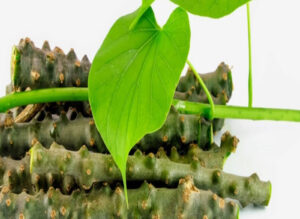
Diseases Management in Giloy
When cultivating Giloy, it’s essential to be aware of common diseases that can affect the plants and take appropriate measures for disease control. Here are some common diseases of Giloy and their control methods:
1. Powdery Mildew:
Powdery mildew appears as a white powdery growth on the leaves, stems, and other plant parts. To control powdery mildew:
- Ensure proper air circulation by maintaining adequate spacing between plants.
- Avoid overhead irrigation, as moisture promotes disease development.
- Apply fungicides recommended for powdery mildew control, following the manufacturer’s instructions.
2. Leaf Spot:
Leaf spot diseases cause dark spots or lesions on the leaves, leading to defoliation. To manage leaf spot:
- Remove and destroy infected leaves and plant debris to reduce disease spread.
- Avoid overhead irrigation and provide proper spacing for good air circulation.
- Apply copper-based fungicides or other suitable fungicides as recommended by experts.
3. Root Rot:
Root rot is caused by fungal pathogens and leads to rotting of the roots, stunted growth, and wilting. To prevent and control root rot:
- Ensure well-drained soil and avoid overwatering.
- Practice crop rotation to prevent the buildup of pathogens in the soil.
- Use healthy and disease-free planting material.
- Apply biocontrol agents or fungicides recommended for root rot control.
4. Bacterial Blight:
Bacterial blight causes water-soaked lesions on the leaves, stems, and fruits, leading to tissue necrosis. To manage bacterial blight:
- Remove and destroy infected plant parts.
- Apply copper-based bactericides or other suitable bactericides as recommended.
- Avoid overhead irrigation and water plants at the base to minimize moisture on the foliage.
5. Viral Diseases:
There are various viral diseases that can affect Giloy, causing stunted growth, leaf deformation, and discoloration. Unfortunately, there are no effective cures for viral diseases. Therefore, prevention is crucial:
- Use virus-free planting material from reliable sources.
- Control insect vectors such as aphids, leafhoppers, or whiteflies that can transmit viruses.
- Practice good sanitation, including removing and destroying infected plants. Regular monitoring of the plants for any signs of disease, early detection, and prompt action can help control and manage diseases effectively. Additionally, maintaining overall plant health through proper cultural practices, such as providing balanced nutrition, avoiding stress conditions, and promoting good airflow, can contribute to disease resistance. When in doubt, consult with local agricultural experts or plant pathology specialists for specific disease management recommendations in your region.

The demand of Giloy
The demand for Giloy has been increasing in recent years due to its growing popularity in the herbal medicine and Ayurvedic industries. Giloy is known for its medicinal properties and various health benefits, which has contributed to its market demand. Here are some points regarding the sales and demand for Giloy:
1. Domestic Market:
In India, Giloy has been an integral part of traditional Ayurvedic medicine for centuries. It is widely used in various Ayurvedic formulations and herbal remedies. The domestic market for Giloy products, including fresh stems, dried powder, extracts, capsules, and syrups, is significant. Ayurvedic companies, herbal medicine manufacturers, and pharmaceutical companies often incorporate Giloy in their products.
2. International Market:
Giloy has gained attention globally as an herbal remedy, leading to an increase in its international demand. The export market for Giloy and its derivatives, such as dried stems or extracts, has seen growth in recent years. Countries like the United States, United Kingdom, Germany, and others with a growing interest in natural and herbal products have shown demand for Giloy.
3. Retail and Online Channels:
Giloy products can be found in Ayurvedic and herbal medicine stores, pharmacies, and health food stores. Additionally, the rise of e-commerce platforms has made Giloy products more accessible to consumers worldwide. Many online platforms offer a wide range of Giloy-based products, making it convenient for consumers to purchase them.
4. Ayurvedic and Herbal Supplements:
Giloy is often included as an ingredient in various Ayurvedic and herbal health supplements. These supplements cater to individuals seeking natural remedies for immune support, general well-being, and specific health concerns. The demand for such supplements has been on the rise, contributing to the demand for Giloy.
5. Increased Awareness and Consumer Preference:
There has been a growing awareness and preference for natural and herbal remedies among consumers. People are seeking alternatives to conventional medicines and are interested in traditional healing practices. This has led to an increased demand for herbs like Giloy, which are perceived as natural and safe options. It’s important to note that the sales and demand for Giloy can vary in different regions and markets. Factors such as local cultural practices, marketing strategies, product quality, and availability of scientific research on its benefits can influence the demand and sales trends. To gain specific market insights and make informed decisions, it’s recommended to conduct market research and analysis, considering the target market and consumer preferences.

Where We Can Sell Giloy
There are several companies in India that specialize in the purchase and processing of Giloy. Here are a few prominent companies that deal with Giloy and other herbal products:
1. Dabur India Ltd.:
Dabur is a well-known Indian company that manufactures and sells a wide range of Ayurvedic and herbal products. They have a strong presence in the herbal medicine industry and are known for their high-quality herbal formulations, including those containing Giloy.
Contact Address: Call: 0120-3962100, 0120-4374935 E-mail: corpcomm@dabur.com
2. Himalaya Drug Company:
Himalaya is a renowned company that produces and markets a diverse range of herbal healthcare products. They offer Giloy-based formulations and other herbal remedies for various health conditions.
Contact Address: Call 1–800–208–1930, E-mail : contactus@himalayawellness.com
WhatsApp Us: 89518 91930
3. Patanjali Ayurved Limited:
Patanjali is a leading Indian brand that focuses on manufacturing and marketing Ayurvedic products. They have a range of Giloy-based products, including Giloy juice, capsules, and powders.
Contact Address: Call 1860-1800-180 & 01334-610111, E-mail customercare@orderme.co.in
4. Baidyanath Group:
Baidyanath is a well-established name in the Ayurvedic medicine industry in India. They produce a wide range of Ayurvedic products, including Giloy-based formulations, churnas (powders), and juices.
Contact Address: Call: 18001021855, Email ID: cc@baidyanath.com
5. Organic India:
Organic India is known for its organic and sustainably sourced herbal products. They offer organic Giloy capsules and teas that are popular among health-conscious consumers.
Contact Address: Call: 1800-309-5153, E-mail: care@organicindia.com
6. Zandu Pharmaceuticals:
Zandu Pharmaceuticals is a leading Ayurvedic medicine company in India. They manufacture and market a variety of herbal products, including Giloy-based formulations, syrups, and tablets. These companies have distribution networks across India and may also have export capabilities. However, it’s important to note that this list is not exhaustive, and there are other companies and local suppliers that may also purchase Giloy. It is recommended to conduct further research and contact these companies directly to inquire about their specific purchasing procedures, requirements, and pricing.
Contact Address Call: 1800-572-8000, Email: care@zanducare.com
